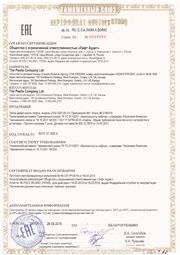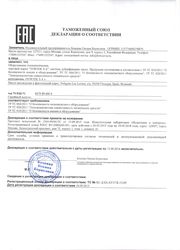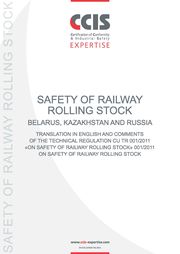Technical Regulation CU TR 030/2012 on requirements for lubricants, oils and special liquids: main definitions
Technical Regulation CU TR 030/2012 on requirements for lubricants, oils and special liquids adopted in the framework of the Customs Union between Russia, Belarus and Kazakhstan by the Decree No. 59 of July 20, 2012 of the Eurasian Economic Commission came into force on March 01, 2014.
Scope and relevant products
This technical regulation of the Customs Union applies to:
- lubricants of organic origin, including:
- motor oils (multifunctional, carburetor, diesel, and oils for aviation piston engines);
- transmission oils
- hydraulic oils
- industrial oils
- compressor oils
- turbine oils
- anticorrosive oils
- electrical insulating oils
- basic oils
- plastic oils;
- special liquids
- cooling liquid (including lubricating and cooling liquids)
- break fluids
- waste products
This technical regulation of the Customs Union does not apply to lubricants, oils and special liquids:
- delivered by the state defense order
- exported out of the boarders of the customs territory of the Customs union
- stored in organizations which ensure the integrity of state material reserve
- oils of vegetable and animal origin
- obtained as a result of high temperature distillation
- coal tar (including creosote)
- not falling under the definitions "oils", "lubricants", "special liquids" stipulated in Article 2 of the present technical regulation
- intended for the production of perfumes and cosmetic products, medical products and medicine
Market Launch
Prior to launching labels for lubricants, oils and special liquids onto the market, the manufacturer / representative should:
- comply with the basic health and safety requirements of the Technical Regulation CU TR 030/2012
- apply procedures for conformity assessment
- obtain a certificate / declaration of conformity and make sure that the latter is included in products
- make sure that products bear the EAC mark
In practice, any products coming onto the Customs Union markets (sales outlets and commissioning sites) after customs clearance should include originals / certified copies of certificates/declarations of conformity.
We offer solutions for:
- obtaining certificates/declarations of conformity
- advising on product labeling, and on documents required for issuing certificates/declarations of conformity
- organizing and supporting on-site inspections at the point of production by authorized experts
- testing and analyzing your products in authorized laboratories
- developing specifications and reference systems for voluntary certification
Additional services:
- monitoring of sector-specific regulations
- monitoring of regulations to pre-ensure that your products conform with all the imposed requirements, for example, prospective analysis of serial production
- providing applicable regulatory documents for your products (translation and comments by our experts)
- consulting regarding the regulatory risk management
Conformity Marking EAC
The conformity mark "EAC" (EurAsian Conformity) consists of an acronym. It means that the products certified are compliant with the essential health and safety requirements of the Technical Regulations of the Customs Union.
All lubricants, oils and special liquids, which have successfully undergone the procedure of conformity assessment according to CU TR 030/2012, have to bear the single conformity mark "EAC". It is applied to each unit of packaging and is set in the quality passport.
Statutory reference
The text in English and/or French of the Technical Regulation of the Customs Union CU TR 030/2012 on requirements for lubricants, oils and special liquids with comments of CCIS-EXPERTISE experts is available in our e-shop.














